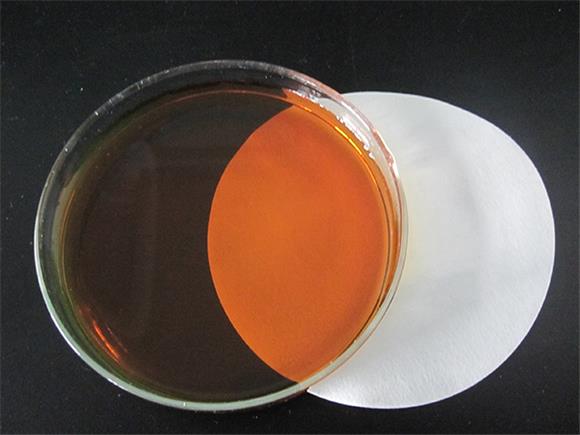
News
Nov . 21, 2024 06:08 Back to list
micronutrients essential for plants factory
Micronutrients Essential for Plants The Unsung Heroes of Growth
In the intricate world of agriculture and plant biology, a multitude of factors contribute to the healthy growth and development of plants. While macronutrients like nitrogen, phosphorus, and potassium often steal the spotlight, it is crucial to recognize that micronutrients, albeit required in smaller quantities, play an equally vital role in plant health. This article delves into the significance of micronutrients, their functions, and how they impact agricultural practices.
What Are Micronutrients?
Micronutrients are elements that plants need in trace amounts, typically less than 0.1% of their total biomass. These include iron (Fe), manganese (Mn), zinc (Zn), copper (Cu), molybdenum (Mo), boron (B), and chlorine (Cl). Despite being present in minute quantities, these micronutrients are essential for various physiological processes and biochemical functions that support plant growth.
The Role of Micronutrients in Plant Health
1. Iron (Fe) Iron is crucial for the formation of chlorophyll, the green pigment responsible for photosynthesis. A deficiency in iron often leads to chlorosis, where leaves turn yellow while veins remain green. This condition affects the plant's ability to produce energy, ultimately stunting growth.
2. Manganese (Mn) This micronutrient is involved in several enzyme systems and helps in the formation of chloroplasts. Manganese plays a role in the photosynthesis process and is also important for the synthesis of amino acids. Deficiencies can result in leaf discoloration and reduced growth.
3. Zinc (Zn) Zinc is a key component of many enzymes and is vital for protein synthesis and hormone production. It influences the plant's growth hormones, particularly auxins, which are essential for proper growth and development. Zinc deficiency can result in stunted growth and leaf curling.
4. Copper (Cu) Copper is integral to photosynthesis and respiration. It serves as a cofactor for several enzymes and is involved in the formation of lignin, which strengthens plant cell walls. Deficiencies often lead to wilting and necrosis in leaves.
micronutrients essential for plants factory

5. Molybdenum (Mo) This micronutrient plays a significant role in nitrogen fixation, particularly in legumes, and is essential for the enzyme nitrate reductase, which helps convert nitrates into nitrites. Without sufficient molybdenum, plants may exhibit stunted growth and poor nitrogen utilization.
6. Boron (B) Boron is vital for cell wall formation and the development of reproductive tissues. It plays a substantial role in pollen germination and seed formation. Boron deficiency can lead to poor fruit development and drop, affecting crop yield significantly.
7. Chlorine (Cl) Although often overlooked, chlorine is important for photosynthesis and osmosis regulation in plant cells. It aids in the formation of chlorophyll and acts as a catalyst in various biochemical reactions. Chlorine deficiency can lead to wilting and reduced turgor pressure in plants.
Micronutrient Deficiency and Plant Health
Deficiencies in micronutrients can manifest in various ways, often leading to visual symptoms such as discoloration, leaf curling, and reduced yield. These deficiencies can be caused by several factors, including poor soil quality, imbalanced fertilization, and the use of high-yielding crop varieties that may have higher nutritional demands.
To mitigate the risks associated with micronutrient deficiencies, soil testing is crucial. Farmers can analyze their soil to detect deficiencies and amend them with appropriate fertilizers and soil conditioners. Additionally, utilizing crop rotation and diversifying plant varieties can improve soil fertility and reduce the risk of nutrient depletion.
Conclusion
Micronutrients, though required in small amounts, are indispensable for the healthy growth and development of plants. Their roles in photosynthesis, enzyme function, and overall plant metabolism are critical to achieving optimal yields in agriculture. As awareness of sustainable farming practices continues to rise, it is essential for farmers and agriculturalists to recognize the significance of micronutrients and prioritize their management in crop production systems. By understanding and addressing the needs of micronutrients, we can pave the way for healthier plants, increased agricultural productivity, and a more sustainable future for food production.
-
Polyaspartic Acid Salts in Agricultural Fertilizers: A Sustainable Solution
NewsJul.21,2025
-
OEM Chelating Agent Preservative Supplier & Manufacturer High-Quality Customized Solutions
NewsJul.08,2025
-
OEM Potassium Chelating Agent Manufacturer - Custom Potassium Oxalate & Citrate Solutions
NewsJul.08,2025
-
OEM Pentasodium DTPA Chelating Agent Supplier & Manufacturer High Purity & Cost-Effective Solutions
NewsJul.08,2025
-
High-Efficiency Chelated Trace Elements Fertilizer Bulk Supplier & Manufacturer Quotes
NewsJul.07,2025
-
High Quality K Formation for a Chelating Agent – Reliable Manufacturer & Supplier
NewsJul.07,2025
